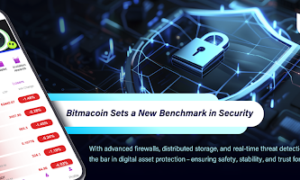In our journey towards CCIE Security Lab certification, it’s crucial to understand the level of commitment and preparation required. The Cisco Certified Internetwork Expert (CCIE) certification is recognized globally as one of the most prestigious and sought-after credentials for network professionals. Achieving the CCIE Security certification requires dedication, hard work, and in-depth knowledge of security technologies. In this guide, we will provide you with a comprehensive roadmap to help you prepare for the CCIE Security Lab exam. more helpful hints
Understanding the CCIE Security Lab Exam
Before we delve into the preparation process, let’s get a clear understanding of what the CCIE Security Lab exam entails. This knowledge will serve as the foundation for your preparation.
Exam Structure
The spoto ccnp exam is an eight-hour practical exam that tests your ability to plan, design, implement, operate, and troubleshoot complex security solutions. It consists of a series of hands-on scenarios that mimic real-world network security challenges.
Prerequisites
To attempt the CCIE Security Lab exam, you must have passed the CCIE Security written exam, which validates your theoretical knowledge of security technologies. Additionally, hands-on experience in configuring and troubleshooting security solutions is crucial.
Planning Your Study Approach
Achieving CCIE Security certification requires a well-structured study plan.
- Assess Your Current Knowledge
Begin by assessing your existing knowledge of security technologies. Identify your strengths and weaknesses.
- Create a Study Schedule
Develop a study schedule that outlines the topics you need to cover and the time you can allocate to each. Ensure a balance between theory and hands-on practice.
- Study Materials
Gather the necessary study materials, which may include official Cisco documentation, books, video courses, and practice labs. Utilize online resources, Cisco’s official study guide, and Cisco Learning Labs.
- Hands-On Practice
Practical experience is essential. Set up a lab environment that replicates the scenarios you’ll encounter in the exam. Practice extensively, focusing on troubleshooting and configuration tasks.
Key Topics to Cover
The CCIE Security Lab exam covers a wide range of security topics. Let discuss some areas you should know
- Network Security
- Implementing security policies
- Access control and identity management
- Network threat defense
- Firewall and intrusion prevention systems
- Secure Connectivity
- VPN technologies and protocols
- Site-to-site and remote access VPNs
- SSL VPNs
- Implementing secure network services
- Infrastructure Security
- Securing the network infrastructure
- Implementing Cisco Firepower NGIPS
- Cisco ISE for identity services
- Security in the cloud
- Security Protocols
- Advanced protocols like BGP and multicast
- Network services and protocols for secure connectivity
- Implementing security for wireless networks
- Test-Taking Strategies
In addition to in-depth knowledge of security technologies, understanding how to approach the CCIE Security Lab exam is vital. Here are some strategies to consider:
- Time Management
Manage your time wisely during the exam. Each task has a time limit, so prioritize and stay on track.
- Document Your Work
Proper documentation can help you track your progress and troubleshoot if needed. Keep detailed notes of your configuration changes.
- Don’t Panic
The exam is designed to be challenging. If you encounter difficulties, stay calm and methodically work through the problems.
Review and Practice
As your exam date approaches, review your study materials and practice extensively. Take practice exams to assess your readiness. Simulate exam conditions as closely as possible to build your confidence.
Conclusion
The CCIE Security Lab exam is a challenging endeavor, but with the right preparation, it’s an achievable goal. Commit to your study plan, practice diligently, and maintain a positive mindset. Remember that success in the CCIE Security Lab exam not only validates your expertise but also opens doors to exciting career opportunities in the field of network security.































